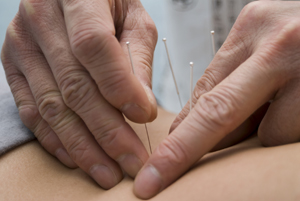
More than 43 million people suffer from arthritis, and half of all people over the age of 65 have arthritis.
by Denise Jenderzak —
Struggling with arthritic pain can be frustrating and challenging. For those with osteoarthritis (OA), the pain affects all areas of their lives. Sleep is disrupted, and the ability to focus and concentrate is diminished. Irritability and depression can occur. As the disease progresses, many patients are forced to give up activities they once enjoyed.
More than 43 million people suffer from arthritis, and half of all people over the age of 65 have arthritis. Arthritis can be debilitating and rob people of their independence. Osteoarthritis occurs when the cartilage between the bones breaks down. This can happen because of injury, being overweight, repetitive strain on the joints or aging.
Symptoms of OA often begin with pain, swelling and stiffness of one or more joints. Many of the medications used to control arthritis symptoms have harmful side effects. However, natural treatment options are available to alleviate pain and restore mobility.
Supplements
Recent research published in Advances in Therapy indicates that omega-3 fish oil combined with glucosamine is more effective in treating the symptoms of OA than glucosamine alone, when taken over a 26-week period. The fish oil reduces inflammation, while the glucosamine rebuilds cartilage. Because the supplement industry is largely unregulated, it is important to choose high-quality brands.
When selecting fish oil, read the labels carefully and choose one that has levels of EPA and DHA greater than 300. The most effective dose of glucosamine is 1,500 mg. In many cases, these supplements need to be taken for four to six months before an effect is noticed.
Foods that stop inflammation
Food choices are important. Unhealthy oils, trans fats, sugar, wheat, dairy products and red meat can trigger inflammation. Instead, use olive oil for all cooking; stevia instead of sugar to satisfy a sweet tooth; substitute brown rice pasta for regular pasta; and choose sprouted grain or gluten-free breads. Use rice, oat or almond milk instead of cows’ milk. Avoid processed and prepared foods.
Green leafy vegetables reduce inflammation. Eat several servings per day. Kale, collard greens and Swiss chard are excellent choices. Blueberries, cherries and strawberries contain powerful antioxidants that prevent tissue damage and decrease inflammation. Broccoli, apples, red onions and walnuts are also superior anti-inflammatory foods.
Wild-caught Alaskan salmon and lake trout are excellent sources of anti-inflammatory omega 3 fatty acids.
Drink plenty of filtered water throughout the day. Dehydration makes inflammation feel worse. The recommended amount is calculated as half a person’s body weight in ounces. So a 140-pound person should drink 70 ounces of water per day.
People taking Coumadin or other blood-thinning medications should talk to their doctors before making changes to their diets.
Weight loss and exercise
Maintaining a healthy weight prevents excessive wear and tear on the joints. People who are overweight are also more likely to develop arthritis. The Arthritis Foundation states that even a small weight loss of 10 pounds takes 30 to 60 pounds of pressure off the knees and can ease arthritic pain.
Once the pain and inflammation have subsided, regular exercise is a great way to regain mobility and increase strength. Exercise strengthens the muscles that surround the joints and increases flexibility. However, it should be a pleasurable experience. If exercise is painful or causes more pain the next day, find another activity.
Also, it is very common for people with arthritis to do too much when they are feeling good, which can lead to days or even weeks of intense pain. Moderation and knowing one’s limits are keys to preventing these frustrating cycles. Walking, bicycling and water aerobics are great low-impact exercises. Yoga and tai chi are also excellent, gentle forms of movement and stretching that alleviate arthritic pain.
Alternative therapies
Alternative therapies like acupuncture, massage therapy, meditation and bio-feedback can be very beneficial to patients with arthritis. In fact, Dr. John Klippel, president of the Arthritis Foundation, strongly supports acupuncture treatment for osteoarthritis of the knee. His endorsement comes after the University of Maryland conducted the largest acupuncture study to date.
The results showed that acupuncture significantly decreased pain and improved mobility of 570 people with osteoarthritis of the knee. All participants in the study had moderate or severe pain, even though they were taking anti-inflammatory or pain medications. Acupuncture, like other natural therapies, often takes longer to be effective. People in the study experienced a 40 percent reduction in pain after 14 weeks of acupuncture therapy.
Acupuncture stimulates the body to produce its own natural pain-relieving substances (endorphins). It can also reduce inflammation and alleviate muscle spasms.
Natural treatment options are available that effectively alleviate arthritic pain. Check with your health care provider before taking supplements, making dietary changes or starting an exercise program.
Denise Jenderzak is a licensed acupuncturist specializing in orthopedics, pain management and sports medicine at In Motion Orthopedic and Sports Acupuncture. 480-832-0966.
Reprinted from AzNetNews, Volume 29, Number 4, Aug/Sept 2010.





February 26, 2012
Acupuncture, Arthritis, Food, Nutrition and Diet, Joint pain, Natural therapies, Vitamins, Minerals and Supplements